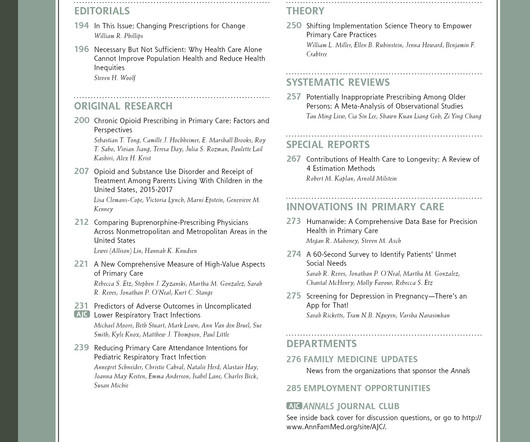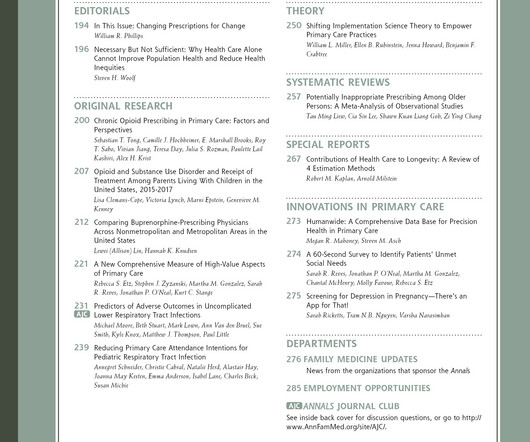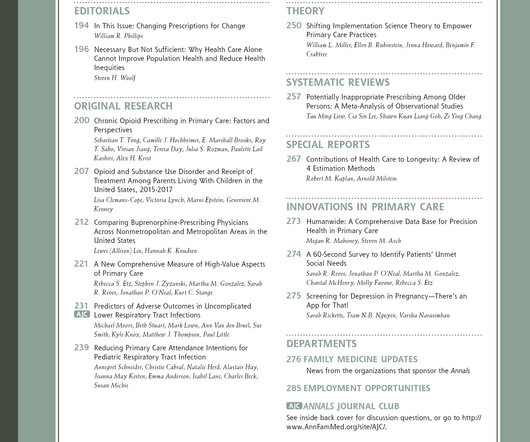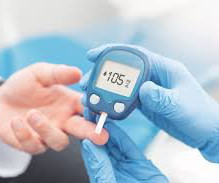Convenience or Continuity: When Are Patients Willing to Wait to See Their Own Doctor? [Original Research]
Annals of Family Medicine
MARCH 24, 2025
This study assessed the preferences of family medicine patients for seeing their primary care physician (PCP) vs other team clinicians based on visit type and wait time. METHODS Our cross-sectional online survey asked patients about their primary care clinics, PCP, portal use, self-reported health, and demographics.













Let's personalize your content